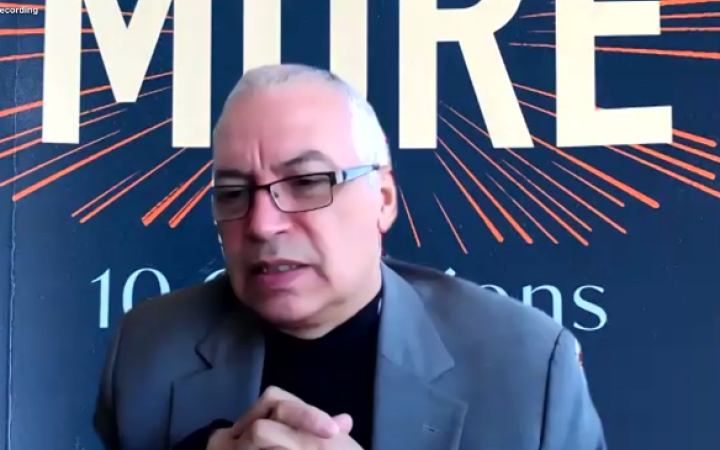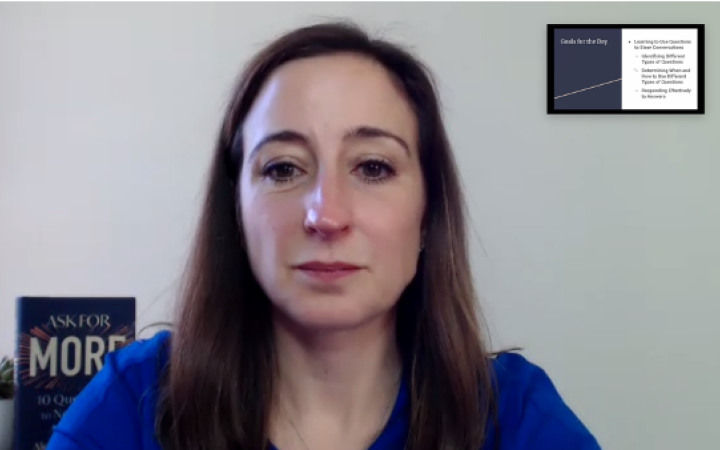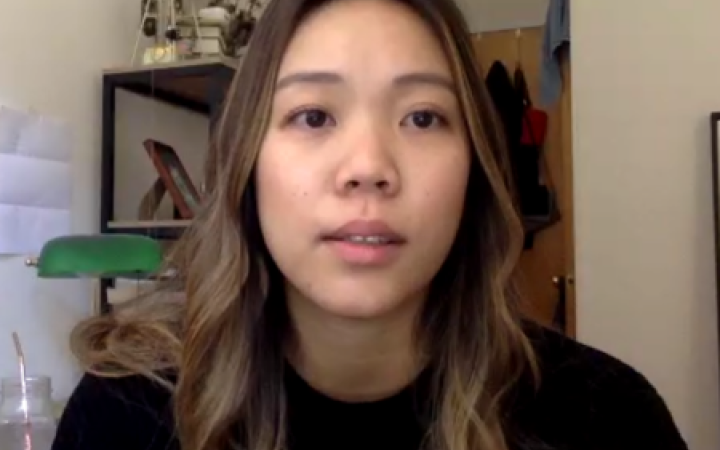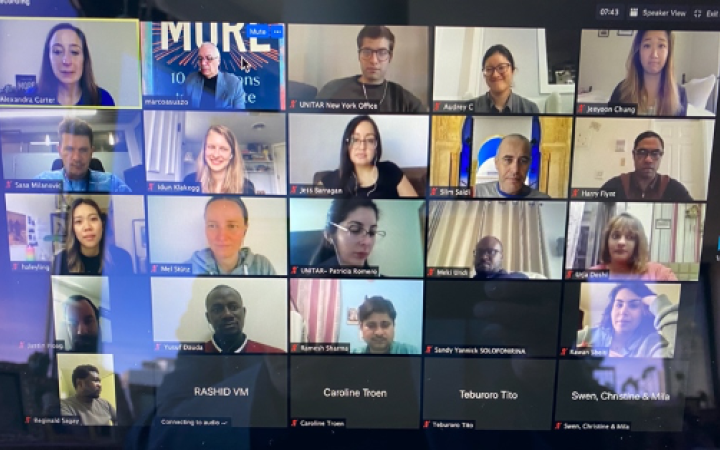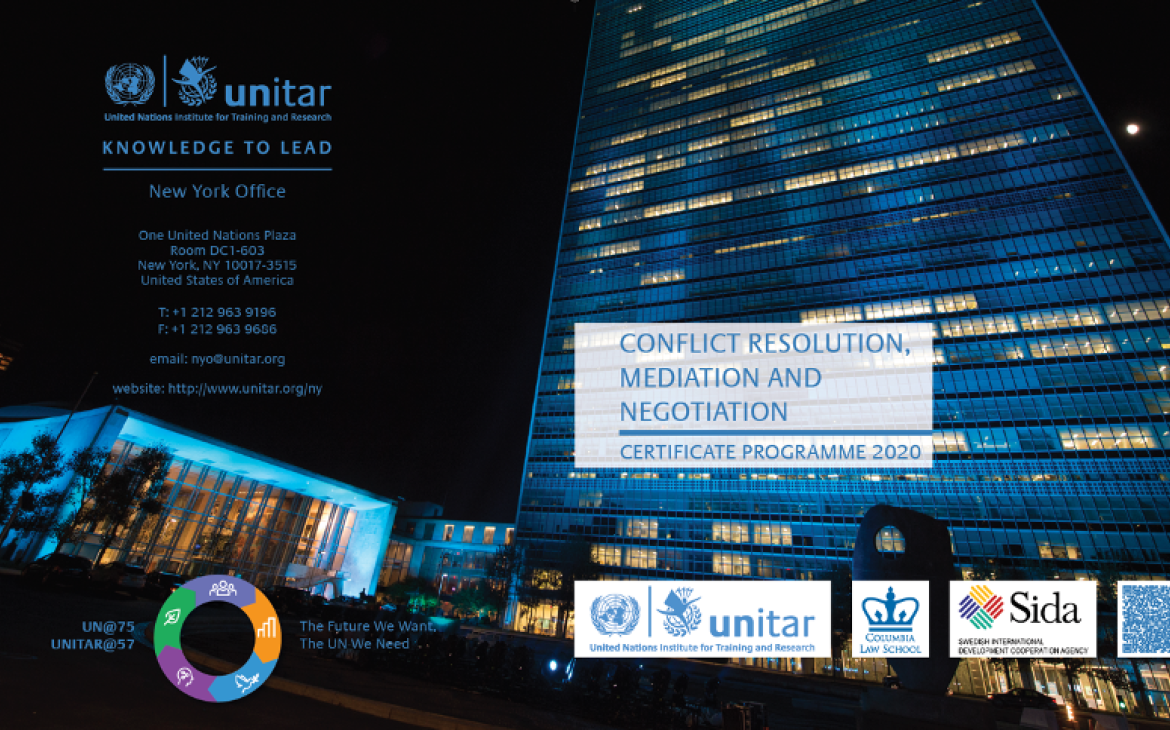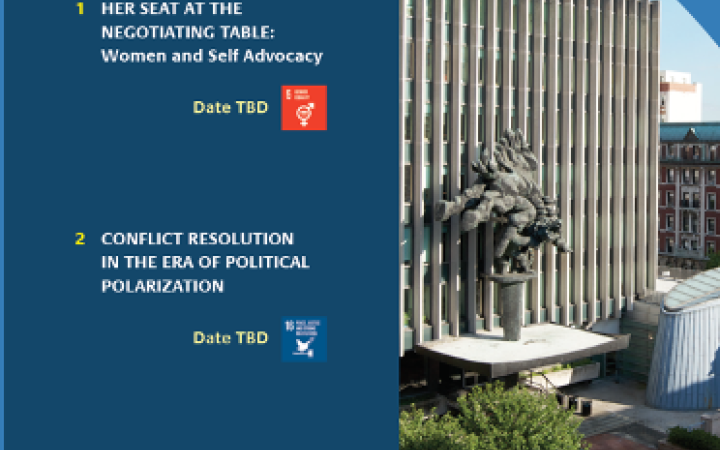5 May 2020, New York, USA (Zoom Workshop) - The United Nations Institute for Training and Research (UNITAR) in collaboration with Columbia Law School, hosted the last workshop in the Columbia Law School series. This series was is supported with funding allocated from the Swedish International Development Agency’s (SIDA) contribution to the UNITAR Strategic Framework Fund and hosted at the United Nations Headquarters. The course was attended by 150 participants that joined remotely through zoom.
The workshop focused on Asking the Right Questions within the context of a Diplomatic Conversation. This particular workshop emphasized the United Nation’s Sustainable Development Goals through providing UN delegates with a practical guide for how to direct diplomatic conversations, a necessary skill in achieving the 2030 Agenda.
Mr. Marco Suazo, UNITAR New York’s Head of Office, delivered the opening remarks, welcomed participants, and introduced the workshop’s facilitators - Professor Alexandra Carter, Director of the Columbia Law School Mediation Clinic; and her co-collaborators Jessica Barragan, Audrey Chao, Jeeyoon Chung, Idun Klakegg, Haley Ling, and Esther Portyansky. A large number of the participants had attended previous workshops within the Columbia Law School series, and most participants had some direct experience with diplomatic conversation and negotiation. The workshop began with Professor Alexandra Carter discussing the crucial nature of questions within negotiation. She then outlined the agenda for the session into sections including, identifying different types of questions, determining when and how to use said different types of questions, and finally responding effectively to answers. Following, professor Carter innovatively found a way of involving participants through the Zoom group chat for input regarding their own ideas concerning the importance of questions within negotiations.
Her co-collaborators then led the discussion on tools for information gathering, and how to ask the right questions. After noting the different methods of furthering a conversation, the participants and facilitators reflected on the differences among closed and open-ended questions, the use and outcome of each, and how one can successfully apply the skills learned from the workshop into their daily work environments. Following, Professor Alexandra Carter and her collaborators discussed the importance of active listening in a conversation, especially in a diplomatic conversation through verbal and non-verbal communication. The floor was then opened by Professor Carter to participants where some great questions were asked and discussed, including how to move forward with more hard-set individuals preventing discussions from moving forward. Possible tactics in approaching more difficult situations such as these, included tactics by the names of Summarizing and Reframing.
Lastly, the topic of asking the right questions was then applied to asking oneself those same questions, done in an effort to fully understand one’s goals before attempting to apply them to a diplomatic conversation between colleagues. By the end of the session, participants reached an understanding concerning the importance questions pose in a negotiating and resolving issues as they are born.
Closing remarks were made by Mr. Marco Suazo, offering his appreciation to the participants that have joined over the course of the Columbia Law School workshops in Partnership with UNITAR, and congratulated Professor Carter on the launch of her new book, Ask for More: 10 Questions to Negotiate Anything, before wishing everyone a farewell. The series will come back again in the fall with 3 brand new courses:
- Her seat at the negotiation table : Women and Self Advocacy
- Conflict resolution in the era of political polarization
- Shine Theory: Amplification Strategies for Diplomatic Leadership
A total countries from Least Developing Countries and Small Island Developing States were:
-
Afghanistan, Angola, Antigua and Barbuda, Bahamas, Bangladesh, Belize, Benin, Bhutan, Botswana ,Côte d'Ivoire, Cuba, Democratic Republic of the Congo, Djibouti, Dominican Republic, Eritrea, Ethiopia, Fiji, Ghana, Kazakhstan, Kenya, Madagascar, Mauritius, Nepal, Rwanda, Saint Lucia, Senegal, South Sudan, Sudan, Tuvalu, Uganda, Yemen & Zambia


